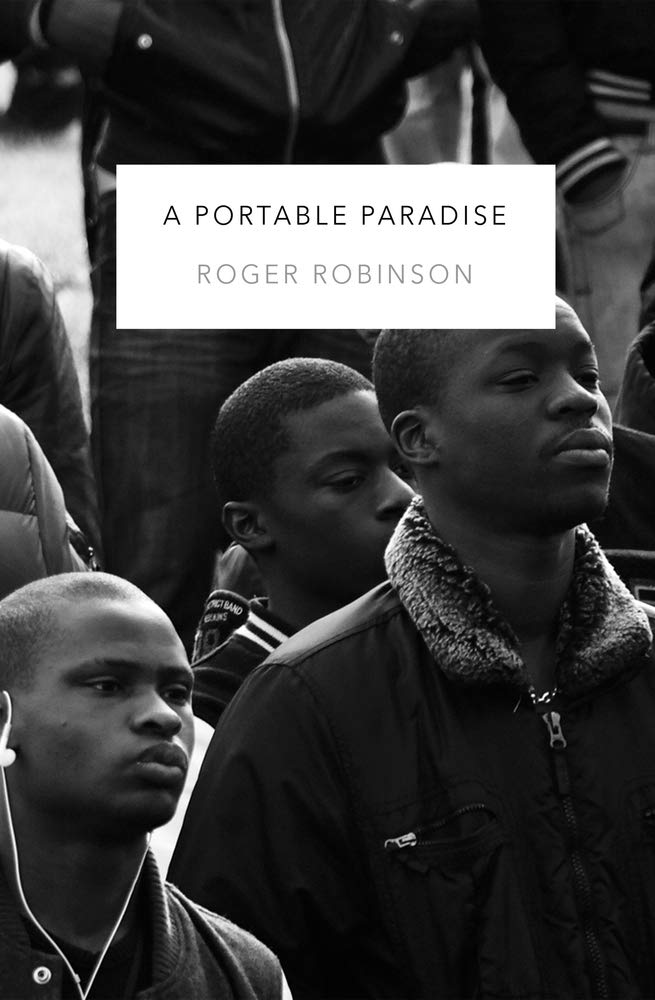From The Reader Bookshelf… A Portable Paradise by Roger Robinson
As part of our ongoing work around The Reader Bookshelf, we've asked staff to share their thoughts about some of the inspirational texts in the collection.
This week, Head of Programmes at The Reader, Anna Farrell, discusses Roger Robinson's A Portable Paradise.

Words by Anna Farrell
I first came across Roger Robinson in the middle of the pandemic, after he won the TS Eliot prize for his new collection of poems A Portable Paradise.
It was title poem that pulled me into the collection - a beautiful and pragmatic poem built around a single piece of advice given to the poet by his grandmother: to carry around a version of your own paradise inside your pocket so you’re never without it. ‘That way they can’t steal it, she’d say.’ Roger’s inherited life trick couldn’t have come at a more useful time for me. A period of intense shielding ahead and no sign of it ending, the poem helped me see that when ‘life puts you under pressure’ it’s up to us to know the shape and size of things that make us happy, or bring us some hope. And it’s up to us to know the way into those feelings when things get difficult, to ‘get yourself into an empty room…and empty your paradise onto a desk’. Troubles will come, the poem seems to say, so what can you empty out of your pockets and shine a light onto when the going gets tough?
But perhaps my favourite from the collection is Grace – a poem that celebrates the Jamaican nurse who cared for the poet’s son on a premature baby unit after he came ‘early, just the 1kg of him, all big head, bulging eyes and blue veins’. Grace is an unsung hero, a force to be reckoned with, and the way she cares is deeply moving and deeply real. If you’ve ever spent any length of time in an NHS hospital, you’ll have met a Grace. She cares not for rank, warning doctors with ‘trembling hands: me only letting you try twice’. In Grace, Robinson puts words around something so many of us already know or come to learn – that no status or medical degree can teach you what it means to care for and nurture someone, only life can teach you that.
There’s so much life in Grace, she virtually jumps off the page, humming her pop songs and commanding her loyal army of nurses to defy the doctors and fill a baby’s tummy against their advice. ‘Him have no right to say that – just raw so’, she says, after a doctor delivers grim news, and you know - you feel - it to be true. You have only met her in this poem but you leave it knowing if you found yourself in a similar position, you’d hope for a Grace in your corner.
Many of Roger’s poems are about Windrush, Grenfell and slavery, and through those poems he translates deep trauma into something we, the reader, can begin to grasp. In one poem young and hopeful Jamaicans step off Windrush into their new life in Britain, and in another we see a parent climbing out of ‘the burning building’, daughter strapped to their back with only a pastel bedsheet. The contrasts he creates are almost as powerful as the individual poems themselves.
I picked this collection for the Walking the Earth bookshelf because if you want to find life, you’ll find all of life here. It feels as though every kind of reaction to literature it is possible to have lives inside this collection. Throat lumps aplenty, some laughter too. It’s full to the brim of moving portraits of life and pain and trauma and if you haven’t already read it, I cannot recommend it enough.
Share
Related Articles

Storybarn Book of the Month: Saving the Butterfly
This month, as part of Refugee Week (16-22 June), we've been taking a look back at one of our favourites…

June’s Stories and Poems
This month we are celebrating the natural world, and especially the many wonderful creatures that live within it, with June’s…

April’s Monthly Stories and Poems
Our year of Wonder with The Reader Bookshelf 2024-25 is coming to a close – though we won’t be putting…


